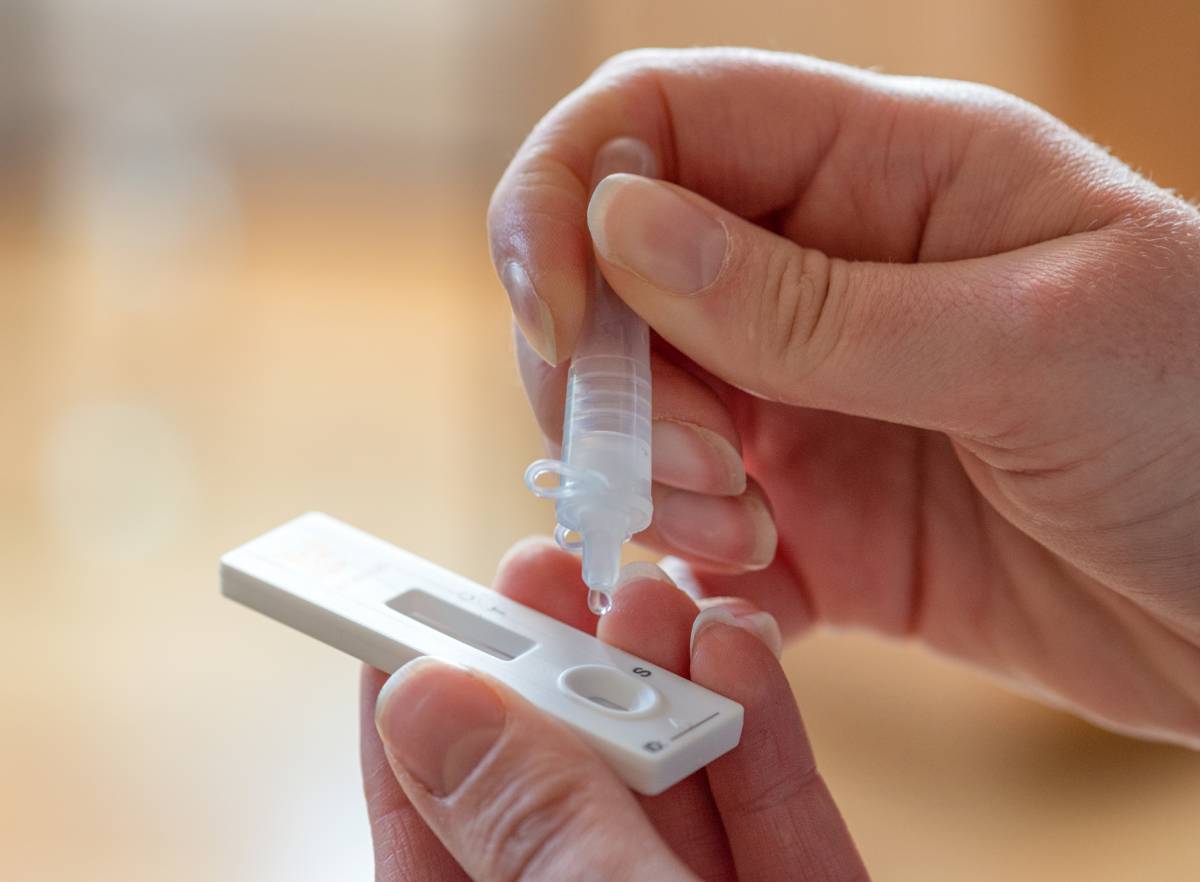
As the COVID-19 pandemic continues, at-home Covid tests have become more common. This article will explore everything that you should know about at-home tests, ranging from when to take them to how to obtain them.
When Should I Take an At-Home Covid Test?
It is a common misconception that people should only take Covid self-tests when they suspect that they have already been infected by the virus. While laboratory PCR tests are more appropriate when a person has already been exposed to the virus, medical professionals advise people to take at-home rapid antigen tests for assurance purposes [1]. It is a good idea to regularly take antigen tests to catch infections early and subsequently isolate oneself before spreading the disease to other people [2]. Both antigen and PCR tests are available in at-home capacities, although the latter must be sent to a laboratory for results [3].
What Is the Difference Between Antigen and PCR Tests?
Real-time reverse transcription polymerase chain reaction (PCR) tests are the more sensitive form of COVID-19 tests [4]. This means that, compared to antigen tests, they are better at detecting infections, and this applies to both at-home tests and tests at clinics [3]. However, they may come back positive for a mean of 17 days and, in some cases, as long as three months after the typically 9-day infection period has ended [3]. As mentioned, individuals can swab themselves at home, but PCR rests require processing using special equipment [4]. As a result, they have to be sent to a laboratory, so results come back more slowly [4].
By contrast, rapid antigen tests can display results within minutes [2]. These tests are convenient because they can be taken at home [1]. They are highly specific, which suggests that they produce very few false positives, but their false negative rate is as high as 20%, compared to PCR tests’ 10% [3]. Accordingly, people who believe that they may have COVID-19 but tested negative according to a rapid antigen test should take a supplementary PCR test [1].
What Should I Keep in Mind When Administering an At-Home Test?
Before using a COVID-19 self-test, you should store all test items according to the manufacturer’s directions on the label [1]. This includes complying with the appropriate storage temperature ranges and making sure to clean and sanitize any objects that may come into contact with the test, as well as your hands [1]. When swabbing, you must take care not to contaminate the sample; otherwise, the test could display inaccurate results [3]. After taking a test, you should not reuse any of the testing objects [1]. Rather, they should be thrown away, and, afterward, you should clean any surfaces that came into contact with the testing materials and wash your hands once more [1].
Where Can I Get a COVID-19 At-Home Test?
At-home tests are available at some grocery stores, local pharmacies, and online [5]. Prices can be around 11 dollars, though some are more expensive [5]. For free tests, people in the United States can visit COVIDtests.gov to order up to 8 free at-home tests per household [6].
Conclusion
By making it easier to determine whether you have been infected by the novel coronavirus, at-home Covid tests can help reduce the overall infection rate [2]. Consequently, each household should keep a couple of tests readily available.
References
[1] K. Rogers, “What you should know about taking an at-home Covid-19 test,” CNN, Updated February 2, 2022. [Online]. Available: https://www.cnn.com/2021/12/17/health/how-to-at-home-covid-19-test-wellness/index.html/. [2] M. Johnson-León et al., “Executive summary: It’s wrong not to test: The case for universal, frequent rapid COVID-19 testing,” eClinicalMedicine, vol. 33, February 2021. [Online]. Available: https://doi.org/10.1016/j.eclinm.2021.100759. [3] A. Crozier et al., “Put to the test: use of rapid testing technologies for covid-19,” BMJ, vol. 372, no. 208, p. 1-7, February 2021. [Online]. Available: https://doi.org/10.1136/bmj.n208. [4] R. W. Peeling et al., “Scaling up COVID-19 rapid antigen tests: promises and challenges,” The Lancet, vol. 21, no. 9, p. e290-e295, September 2021. [Online]. Available: https://doi.org/10.1016/S1473-3099(21)00048-7. [5] Center for Medicare & Medicaid Services, “How to get your At-Home Over-The-Counter COVID-19 Test for Free,” CMS, Updated January 12, 2022. [Online]. Available: https://www.cms.gov/how-to-get-your-at-home-OTC-COVID-19-test-for-free. [6] T. Keith, “You can order free COVID tests from the government again,” NPR, available March 7, 2022. [Online]. Available: https://www.npr.org/2022/03/07/1085022030/you-can-order-free-covid-tests-from-the-government-again.
